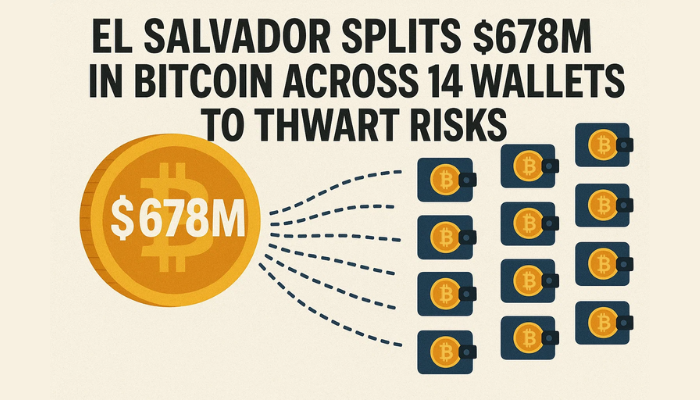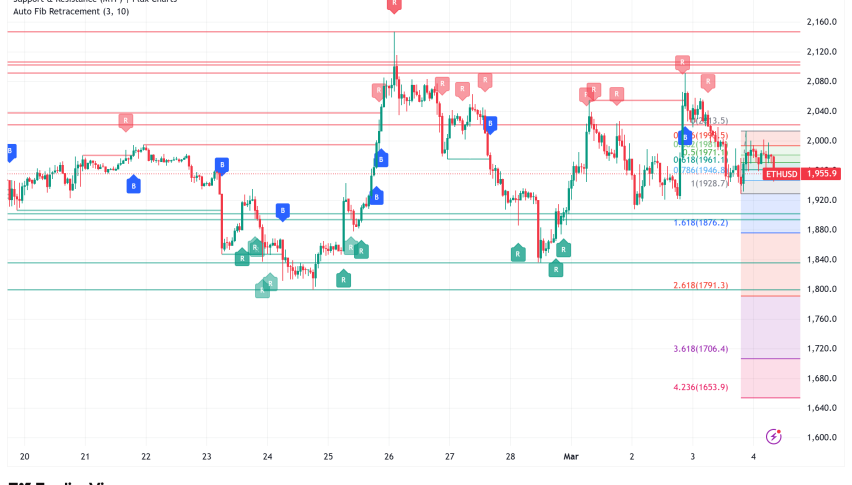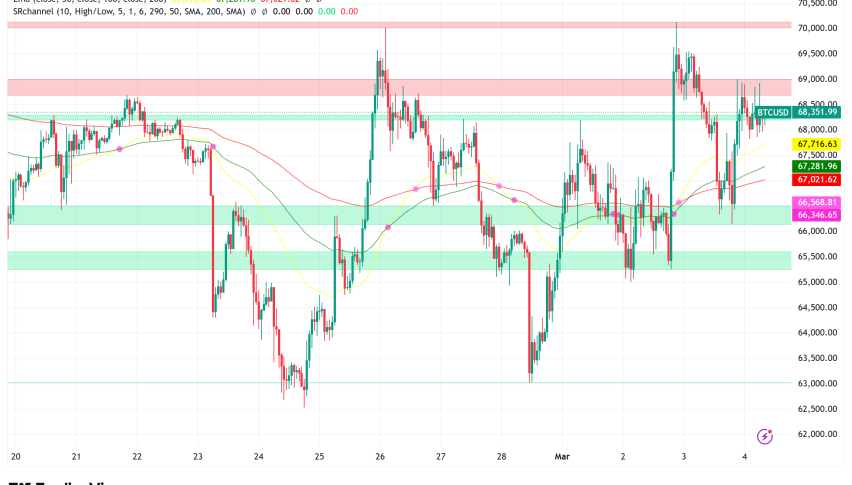El Salvador Splits $678M in Bitcoin Across 14 Wallets to Thwart Risks
El Salvador has taken a big step to protect its $678 million Bitcoin reserve by spreading its holdings across 14 separate wallets...

Quick overview
- El Salvador has diversified its $678 million Bitcoin reserve across 14 wallets to mitigate risks associated with potential quantum computing threats.
- The government capped transfers at 500 BTC per wallet to limit exposure and enhance security, moving away from a single address storage system.
- A new public dashboard has been launched to track the assets, promoting transparency and security for state-owned crypto holdings.
- El Salvador's Bitcoin strategy continues to evolve, with recent collaborations and infrastructure projects aimed at strengthening its role in cryptocurrency adoption.
El Salvador has taken a big step to protect its $678 million Bitcoin reserve by spreading its holdings across 14 separate wallets to reduce the risk. The move was announced in an official statement from the country’s Bitcoin Office which said each transfer was capped at 500 BTC.
Previously the entire 6,274 BTC was stored in a single address, a structure critics said was too exposed to technical and cryptographic risks. By spreading the reserves across multiple wallets the government is limiting the damage in case of future threats, especially from quantum computing.
A new public dashboard is now available to track the assets, to ensure transparency and to strengthen the security of state owned crypto assets.
Quantum Computing Risks
The redistribution is due to the growing concern of quantum algorithms like Shor’s that could potentially break Bitcoin’s public-private key encryption. Once a transaction is broadcast the public key is visible and attackers have a small window to exploit.
By diversifying the holdings El Salvador is reducing the risk of a single point of failure in case of a quantum breakthrough. Experts say this is often paired with other measures:
NEW: 🇸🇻El Salvador splits $678M Bitcoin across 14 wallets to reduce quantum risk. pic.twitter.com/EXkvnvTnqf
— CryptoMinute ⏳ (@CryptoMinuteAI) August 30, 2025
-
Multi-signature protocols to require multiple approvals per transfer.
-
Hardware wallet segregation to isolate keys from online threats.
-
Role-based access controls to prevent centralized abuse.
This comes at a time when the country is working on other national projects. Just weeks ago El Salvador signed a $1.6 billion infrastructure deal with Turkey’s Yilport Holdings to expand ports near its planned Bitcoin City, showing its dual approach to digital and physical investments.
Broader Bitcoin Strategy Expands
This new security measure comes as El Salvador deepens its global role in cryptocurrency adoption. In July the government announced a collaboration with Pakistan to explore blockchain solutions for public sector finance.
Despite IMF criticism El Salvador’s Bitcoin portfolio is booming. President Nayib Bukele said the country’s holdings have appreciated 124% year over year and are now worth $644 million.
The government paused direct Bitcoin purchases in early 2025 but its strategy is clear: to grow and secure the reserves while promoting new use cases. Analysts say other countries could follow similar custody frameworks to reduce political friction and build trust in digital asset integration.
By spreading its holdings across multiple wallets El Salvador is not only strengthening its Bitcoin defenses but also showing the need for robust state level crypto management in the age of technology.
- Check out our free forex signals
- Follow the top economic events on FX Leaders economic calendar
- Trade better, discover more Forex Trading Strategies
- Open a FREE Trading Account
- Read our latest reviews on: Avatrade, Exness, HFM and XM


